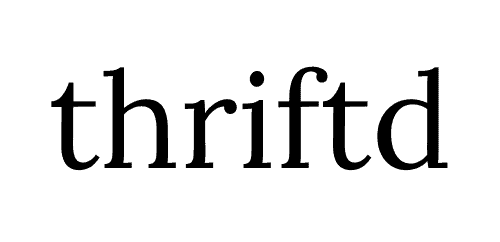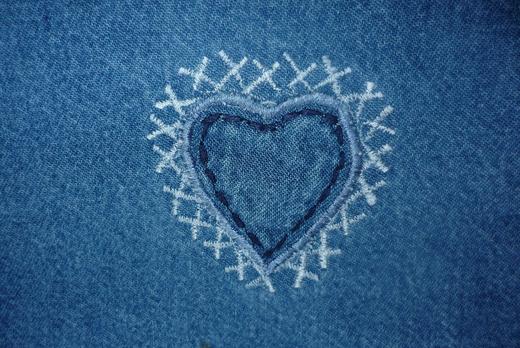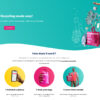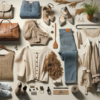Associations like Baptist World Aid deliver reports every year rating, naming and disgracing brands that aren’t straightforward or ethical clothing brands. The report for 2019, published on April 10, is more complex and extensive in scope than ever and features the fundamental data clients search for with regards to how their top retail brands produce their items.
For the sixth year straight, Baptist World Aid has put sustainable fashion brands and their parent organizations interrogated and ranked on their ethical performance. The 2019 Ethical Fashion Report ranks 130 companies from A+ to F based on the strength of their supply chains to mitigate the risks of forced labour, child labour, how workers are treated and general exploitation.
Researchers reviewed 130 companies representing 480 brands including 50 newcomers that are up from114 companies from last year. The research methodology has also been expanded to include data on the environmental impact of brands bringing the total number of business criteria to 44.
The 2019 Ethical Fashion Report
As the name proposes, the report is a comprehensive survey of the activities of brands in line with ethical practices and sustainability. The Ethical Fashion Guide features which brands are making positive strides and meeting these expectations, and those proceeding to fall behind the line.
At three critical stages of the supply chain, the 2019 Ethical Fashion Report evaluates a large selection of companies on 44 specific criteria across the five key themes. The 2019 Ethical FashionReport presents a clear picture of ethical sourcing practices in the fashion industry as a handy resource for customers, corporations, investors and policymakers. It has established a baseline of accountability for apparel.
Additionally, it is a useful resource to help organizations with benchmarking and learning, as well as to highlight and identify issues for policymakers to address.
Baptist World Aid’s sixth Ethical Fashion Report ranked 130 companies from A+ to F. Seven brands received the highest possible grade of A+ which includes Meghan Markle Favourite Outland Denim, alongside Mighty Good Group, and Etiko. Another familiar face, New Zealand-based Kowtow, shot to the top position for the first time interestingly this year.
An additional 24 companies representing 74 brands also fell in the A or A- range. Encouragingly, 38 percent of companies assessed in 2018 and 2019 managed to improve their overall grade in the interim.
On the other hand some of Australia’s most well-known brands scoring a D+ or less. A total of 35 brands were given a score of F in 2019– all of which either refused to participate in the study or were unresponsive to requests.
For the 34 organizations that didn’t participate, some got an evaluation as high as C+ dependent on data made openly accessible through their site and web-based media.
Baptist World Aid with the slogan of “Be Love. End Poverty” is an international organisation of Christian aid and development aimed at empowering communities and achieving justice for the poor.
The organisation has focused on the fashion industry ethical consumption, releasing annual reports and guides. Based on 44 specific criteria, Behind The Barcode project has been running for six years and has assessed ethical clothing brands and companies on the strength of their labour rights management system and fair trade.This is the first year that the ethical fashion report will survey organizations on their environmental management system alongside their labour rights management system in consideration of their final grade to appear in the ethical brands’ list.
How are these brands graded? Ethics in Fashion
For the Ethical Fashion Report, ethical brand assessment is conducted at three critical stages: raw materials, inputs production, and final stage production which is further grouped into five themes for grading criteria.
Policies
Policies form the standards that brands want their production to adhere to. They are the baseline by which a brand can measure the effectiveness of its overall efforts to uphold worker rights
Traceability and Transparency
To ensure that worker rights are being upheld, brands need to know which facilities are responsible for the production of their product.
Auditing and Supplier Relationship
Monitoring facilities and building relationships are critical to ensuring policies are adhered to and improvements in working conditions are being delivered. While no monitoring process is perfect, high-quality monitoring helps to provide a better understanding of the conditions of workers. A focus on strengthening relationships allows trust-building and increases a brand’s capacity to drive change.
Worker Empowerment
For a labour rights system to improve working conditions, workers must be empowered, allowed a voice, and have their most critical concerns addressed. It is workers who have the best visibility of working conditions.
Environmental Impact
The fashion production process can cause significant environmental degradation, which affects the wellbeing of workers, the communities they live in, and their natural environment. By assessing the materials and facilities they use to make their products, brands can take informed steps to reduce their environmental impact from the farm to the final item of clothing.
Company responses are reviewed and further clarified whereby supporting documentation are sought where necessary to verify the data provided by companies.
Millions of jobs have been created due to the global fashion industry across the world which add value to economic growth, generate tax revenues, provide training, skills to workers and generate foreign exchange. All these factors help to improve the working conditions, the living standard of workers and their communities. At the same time, the fashion industry is a source of exploitation for millions.
The grades awarded in the report are a measure of each company’s efforts to mitigate the risks of forced labour, child labour, labour exploitation, and environmental harm.
Higher grades correspond to companies with labour rights and environmental management systems that, if implemented well, should reduce the risk and extent of worker exploitation and environmental harm in the production of that company’s products and to produce sustainable fashion products.
Low-graded companies are those who do not take such initiatives or those who choose not to disclose if they take such initiatives. When the research has been conducted, the Research Team from Baptist World Aid sends the brand its finding and data with the choice for additional information, proof or remarks. For the ones that are lethargic or unresponsive, they are contacted multiple times to give feedback.
Names like Cotton On, Country Road and Kookai all managed top grades, but there are a few smaller companies, like Showpo, P.E. Nation and Rebecca Vallance, who chose not to participate and were graded with an F. Low-end fashion companies like Lowes, Katies, Miller and Rockman performed poorly, but low prices were not necessarily a sign of low ethical business practices.
Progress in 2019 Ethical Fashion Report
In 79 percent of the areas assessed, improvements have been made across the fashion industry since last year. The most notable areas of advancement in 2019 are that 61 percent of businesses (an increase of 22 percent) have developed policies to address gender inequality in their organizations, including the introduction of strategies to address women’s discrimination.
Forty-five percent (45%) of companies practised responsible purchasing practices (an 18 percent increase), as they introduced policies addressing responsible buying practices to improve working conditions.
Child and forced labour improvement accounted for a total of 35% of enterprises (an increase of 17%) with robust plans for remediation of children or forced labour if found in their supply chain.
A 14% increase in the brands, accounted for 35% of the company respondents, used the Manufacturing Restrictive Substance List (MRSL) in trying out and testing their standards, procedures and working conditions to ensure their workers are not exposed to dangerous chemicals with dire environmental impacts.
Gleaned from the 2018 report, some notable outcomes have been noted. More companies are investing in Gender Equality accounted for 22%. About 18% of the brand respondents were found to have sanitized and improved in their Responsible Purchasing Practices. By far, 17% of the brands are ready to deal in looking into its policies that are against Remediate Child and Forced Labour. Significantly, 38% of companies saw an improvement in their grade in which seven (7) received an A grade and seventeen (17) received an F grade. 50% of the companies are developing policies and expressing an intent, only 5% could demonstrate that they are doing this in the latter stages of the production process.
In addition to its traditional focus on labour rights, new environmental management metrics were also incorporated in the evaluation criteria in this year’s research. Last year, researchers moved to investigate brands eco friendly environmental policies, but this data was not reflected in the final results. In 2019, a brand’s environmental efforts account for 10 percent of its overall grade, acknowledging the relationship between how a company treats its workers, working conditions and the impact it has on the planet. Brands were asked 11 questions related to carbon emissions, chemical management strategies, use of sustainable fibres, water consumption, and take-back and repair programs designed to curb textile waste.
In 2019, 75% of companies were actively involved in the research process, shedding light on the performance of the global fashion industry in the labour rights and environmental management arenas.
The global fashion industry remains a significant employer for the 43 million workers in the Asia Pacific region and millions of others worldwide.
Baptist World Aid
Baptist World Aid helps Australians address global poverty injustice. They partner with similar agencies to encourage communities to emerge from poverty, challenge injustice, and build resilience.
Baptist World Aid describes its vision in simple words as “ A world where poverty has ended and all people enjoy the fullness of life God intends.”
Baptist World Aid partners in giving, ethical consumption, courageous advocacy, and faithful prayer with Christians and churches in Australia to achieve justice for people living in poverty.
Their community development projects build lasting poverty solutions for entire communities, and their child sponsorship program helps children break down poverty barriers – for themselves and their entire community.
Their main motives are working through their Christian partners, as they say on their official website “we work with communities to identify the root causes of their poverty. We provide support, resources, and training so communities can put their plans to overcome poverty into action.”
A high level of community involvement and ownership is central to the success of this type of programming. That’s why they work to encourage people to form community-based organisations with their Christian partners.
The community aspect of the organisation is also important. “Community-based organisations received training on agriculture, education, health, child rights, leadership skills and savings. Members are encouraged to act together and discover ways to use their strengths to create change and build lasting solutions.” Baptist World Aid partnered with 39 local organisations in 25 countries.
The Progress Made so Far
This report signifies a higher level of progress and even though there remains a lot more work to be done
Chief Executive Officer, John Hickey, commented in an interview for Eternity News, “When we first came out in 2013, most of the corporates were going ‘who is this organisation Baptist World Aid?’, so we probably had less than 30 percent of the companies engaged directly with us on our request for survey information.” Each report – since the launch of the first in 2013 – has tracked the progress within the fashion industry. The change since 2013 has been significant.
He notes that this year “we were up to over three-quarters of the companies but a hugely expanded run of companies and brands, so we now have 130 companies and over 430 brands that we’re assessing through the report. So there’s been a big change in the scale but also in the number that engages directly with it.”
“In 2013 barely any companies were talking about the living wage, which was one of our key things. We’ve still got a long way to go, but companies are talking about it now. The percentage of actual living wages is still very low, but at least you can see the trend there, which is exciting … So they’re researching much better what’s going on – now they need to act on it.”
He noted there was a huge shift in the way companies kept track of suppliers. “Last year, we’ve seen 32 percent more companies tracing the inputs of suppliers, 31 percent more companies are tracing raw materials suppliers. That’s a huge shift because often companies would look one step back in the supply chain and not go much further, but clearly, the supply chain starts with the production of the raw materials, then there’s the basic milling, then there’s a garment manufacturer, and so on.”
The best method to produce an accurate and honest report is to go through the whole supply chain, and “not just a part that’s most visible to you, and think responsibly about that. That’s a whole area that we want to focus on now with companies. Because … often bad environmental impact has a clear line of affecting the vulnerability of people living around the production place.”
The report is also aware of the problem of pollution and has taken into account the sustainability of fashion companies. “There’s a statistic that one T-shirt can take up to 2500 litres of water to produce, so it’s a huge amount of water that is used for a start, but secondly what we also know is that with manufacturing processes you get polluted water … and also air pollution. The fashion industry is a significant consumer of fresh water, using approximately 79 billion cubic metres per year So we’re conscious of trying to shift the major players to think about not just the day-to-day work environment but the whole environment that people in the supply chain are enduring based on the manufacturing practices.”
There’s a potential improvement in standards, but he warns that “it’s a process – we’re not expecting spectacular change, but it’s a journey and you see positive change over time. Only 8 percent of companies could demonstrate the presence of trade unions or collective bargaining agreements in all of their factories, and 21 percent could demonstrate the presence in the majority of factories, so we think that is a low percentage.”
He concluded the interview with the goal of “a respectful balance – we would not have a strong economy without good business generating employment, but at the same time there needs to be a sense of being reasonable and there is a need to have a collective approach to follow ethics in fashion industry.”
Some statements from non-responsive companies
Even though the Report has gained traction in recent years, there are still companies that refuse to supply their data. Out of 130 companies, 34 companies refused to engage with the survey and they have been listed as non-responsive. Each non-responsive company was offered the chance to include a short statement in the report, regarding its decision not to participate in this research. Here is their reasoning behind that decision:
World
WORLD was founded by Dame Denise L’Estrange-Corbet and Francis Hooper in Auckland in 1989, and while they were non-responsive they sent a statement outlining their position.
“WORLD has chosen not to partake in the Tearfund questionnaire. Whilst WORLD appreciates what Tearfund is endeavouring to achieve, we do not believe at this time, that the Tearfund Survey applies to, or understanding of New Zealand garment production. WORLD will continue to champion New Zealand manufacturing and help maintain a local industry that is receding at an alarming rate, whilst applying our community’s high ethical and moral standards.”
Fruit of the Loom
Fruit of the Loom has been a leading manufacturer of high qualityclothing for more than 165 years; their range, quality, service and value, established in 1851 by two brothers in Rhode Island, USA. The name of the company is one of the oldest trademarks in the world and this also means that it is older than Coca-Cola, the light bulb and even the modest bag of paper. They refused to participate in the report, however, and sent only a statement.
“At Fruit of the Loom, we are committed to conducting business following the highest standards of business ethics and respect for human rights and support eco friendlypractices. We operate in accordance with these standards as outlined in our Code of Conduct in all facilities that supply our products. We take pride in creating an environment of continuous improvement where both employees and the business can be successful, balancing the needs of the business with our impact on the environment, the people involved in our supply chain, and the communities in which we operate. We choose suppliers that share our commitment and work with us to produce sustainable fashion products by adhering to our Code of high quality standards, which is monitored through regular assessments conducted by third party firms.”
They commented on how their worker safety policies are a critically important aspect of their program. Accordingly, they have adopted a “Factory Safety Policy” to clarify our expectations of all suppliers to honour our commitment to worker safety. Besides, we support the major initiative supporting Bangladesh Worker Safety: The Accord on Fire and Building Safety in Bangladesh. Beyond these efforts, Fruit of the Loom is a signatory to the Apparel & Footwear Industry Commitment to Responsible Recruitment to join the industry to address potential forced labour risks with regards to migrant workers, and we are committed to being in full alignment with the Transparency Pledge concerning our Supply Chain. “
The Baby Factory
NZ’s leading specialist in babywear and nursery furniture serving NZ with 25 nationwide stores and matching online shopping service for over 25 years. They are proud to be a family run business owned in New Zealand that employs more than 200 New Zealanders. Even so, they refused to participate, and this is their explanation.
“Because we are such a small company operating in predominantly one small market (NZ), and our clothing volumes are small, we only use overseas and local agents to source our high quality clothing, which comes predominantly from China. Manufacturers do not wish to deal with us directly because of the small MOQ’s we use. We are therefore unable to obtain the information you have requested.”
Max
As an ethical brand, Max continues to be committed to a sustainable fashion sourcing business model. We have taken the decision not to participate in the Ethical Fashion Survey but to instead focus on initiatives that make real change to our sourcing model and sustainable business practises. We have made significant progress in the past year in our ethical production practises and have collaborated with the Tearfund team to demonstrate the progress we have made and to identify new areas of opportunity. We are transparent about our sourcing practises and publish these in detail on our website: Maxshop.com
Impact of Ethical Fashion Report On Fashion Industry
Numerous recent studies have confirmed that young consumers are interested in sustainable fashion and prefer ethical clothes, the demand is there. Nobody is defaming the amazing work that organizations like Baptist World Aid give to engage shoppers to shop ethically. Customers and ethically clothing Australia brands are accepting straightforwardness and gratitude to reports like Behind The Barcode, it’s getting inadmissible to conceal essential data from shoppers about garment production.
There are however limitations to grading brands. Fashion ethics can make an impactful significant change, the collaboration required between NGO’s, the fashion industry, consumers and the government departments.
2018’s Ethical Fashion Report was downloaded over 50,000 times. The 2019 report is expected to hit an even larger audience, as the report can also be read quick and easy via the mobile app ‘ End Poverty’ published by Baptist World Aid.
THRIFTD AUSTRALIA
An Australian online thrift shop that supports the increasing number of conscientious consumers who are making a difference by buying quality secondhand clothing, books, accessories, and home goods.




